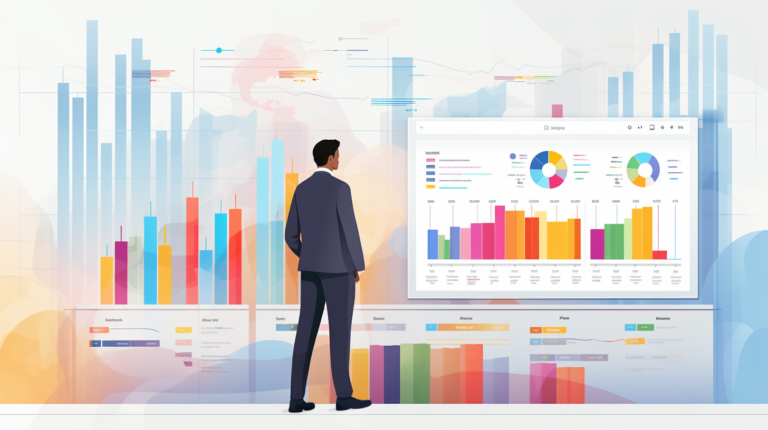Navigating the world of auto loans can sometimes feel like trying to find your way through a strange city without a map. It’s even more challenging when you’re weighing between
new and used cars. Trust me, I understand how puzzling it can be; each option is accompanied by its own set of factors such as
monthly payments,
maintenance costs, and
loan term lengths that read like an algebra problem! But don’t worry – in this blog post, we’re going to unravel the complexities of financing both new and used cars into simple language you’ll appreciate. We’ll also share insights on making
smart financial decisions so you won’t get lost along the way. Ready for a journey down finance lane?.
Key Takeaways
- Understanding car loans: Car loans allow individuals to borrow money from a lender to finance the purchase of a car, and monthly payments are made until the full amount is paid off.
- Pros and cons of buying new cars: New cars come with the latest features but can be more expensive, depreciate quickly, have higher insurance costs, and interest rates may vary based on credit score.
- Pros and cons of buying used cars: Used cars are cheaper upfront, depreciate slower, may not have warranties or latest features, can have higher interest rates for loans, and might require more maintenance.
- Important factors in decision-making: Consider your budget for monthly payments, including other expenses; calculate loan repayment period; research current interest rates; factor in additional costs like insurance and maintenance.
Understanding Car Loans

Car loans allow individuals to finance the purchase of a car by borrowing money from a lender, such as a bank or credit union.
How Car Loans Work
A
car loan lets you
buy a car and pay for it over time. You
borrow money from a bank or lender and then pay them back. Each month, you make a payment until the full amount is paid off. The bank will add an extra fee called
interest to your
monthly payments. The lower your
credit score, the more interest you’ll have to pay. If you fail to make payments, the bank can take your car because it’s used as
collateral for the loan. This is how secured loans like auto loans work.
Refinancing Car Loans
Let’s talk about
refinancing car loans. Refinancing is a way to get better loan terms. Here are some points to think about:
- Car loans are secured loans. The bank uses your car as collateral.
- You can refinance to get a lower interest rate.
- It also helps if you want to shorten your loan term.
- Look into the safety record and insurance costs of your car model before refinancing.
- It’s also smart to know the five-year cost-to-own of your car.
- Longer terms mean smaller monthly payments but higher overall costs.
- Get preapproval on financing before going to the dealership for a better deal.
Comparison of Auto Loans
The comparison of auto loans involves several factors such as the
type of vehicle,
loan terms, and
interest rates, among others. Here’s a quick overview:
| Type of Vehicle | Average Loan Amount | Average Monthly Payment | Interest Rates |
|---|
| New Car | $41,665 | $700 | Ranges from 3.8% to 4.6% for people with excellent credit |
| Used Car | $28,506 | $525 | Ranges from 3.8% to 4.6% for people with excellent credit, can go as high as 19.8% for scores of 500 or lower |
It’s worth mentioning that auto loans are secured loans with the car serving as collateral. The repayment periods for these loans usually range from 24 to 84 months. However, longer loan terms may lower monthly payments but could potentially increase the overall cost due to inflated interest rates. Also, remember that your
credit score plays a vital role in determining your loan approval and interest rates. Scores less than 660 could result in higher interest rates, while 500 or below could lead to as high as 19.8% interest.
Deciding Between New and Used Cars

When deciding between new and used cars, it’s important to consider the pros and cons of each option.
Pros and Cons of Buying New Cars
Buying a new car is an exciting prospect. However, it’s essential to carefully consider the pros and cons before making such a substantial investment.
| Pros | Cons |
|---|
| New cars come with the latest features and technologies, providing a more comfortable and convenient driving experience. | New cars can be significantly more expensive, with the average new car loan in 2023 being $41,665. This could result in higher monthly payments, averaging around $700. |
| With a new car, you have the peace of mind that it has no previous issues or damage. | Depreciation hits new cars the hardest. The value of a new car can drop significantly in the first few years of ownership. |
| New cars often come with a comprehensive warranty, covering most repairs for a certain period. | Insurance costs can be higher for new cars due to their higher value. This can add to the overall cost of owning a new car. |
| When buying new, you have the opportunity to customize the car to your liking. | If you’re financing the new car, interest rates can vary based on your credit score. For instance, scores lower than 660 can lead to higher interest rates. |
Remember, buying a new car is a significant financial commitment, so it’s crucial to consider these pros and cons and how they align with your budget and lifestyle.
Pros and Cons of Buying Used Cars
Buying a used car has its upsides and downsides. It’s important to consider these before making a decision to buy.
| Pros | Cons |
|---|
| Lower upfront costs provide immediate savings, as used cars are usually less expensive than new ones. | Used cars typically come with higher interest rates for auto loans. |
| Used cars depreciate at a slower rate than new cars. This means that they hold their value longer. | Used cars do not always come with a warranty, leaving you susceptible to unexpected repair costs. |
| The cost difference between a new and used car can be substantial, often over $21,000. | Used cars typically do not come with the latest technology and features found in new cars. |
| Many used cars are now certified pre-owned, meaning they’ve undergone rigorous inspections and come with a limited warranty. | Depending on the previous owner and the car’s history, a used car may require more maintenance and repair work than a new one. |
Remember that buying a used car can be a smart financial decision if you’re prepared for the potential downsides. And always be sure to get a pre-purchase inspection before sealing the deal.
Certified Pre-Owned Vehicles
Certified Pre-Owned Vehicles are a good option when buying used cars. These vehicles have gone through a thorough inspection and meet certain quality criteria set by the manufacturer. They often come with
extended warranties and additional benefits like roadside assistance. However, it’s important to note that certified pre-owned vehicles
may cost more than regular used cars due to these added features. Before making a decision, consider your budget, desired features, and how long you plan to keep the car. Doing
research on different models and comparing prices can help you find the best deal for your needs.
Financial Considerations for New and Used Cars

When considering the financial aspects of buying a new or used car, it’s important to take into account your monthly payment budget, maintenance costs, and any additional features or add-ons. Understanding these considerations can help you make an informed decision about which option is best for you. Read on to learn more about financing options and how they can impact your overall cost of ownership.
Budgeting for Monthly Payments
Budgeting for monthly car payments is an important step in deciding between new and used cars. Here are some key factors to consider:
- Determine your monthly income: Calculate how much money you have available each month to allocate towards your car payment. This will help you set a realistic budget.
- Consider other expenses: Take into account your other financial obligations, such as rent or mortgage payments, utilities, groceries, and any existing loans or debts. Make sure you have enough room in your budget to comfortably cover all these expenses.
- Calculate loan repayment period: Determine the length of time over which you’re comfortable making car payments. Remember that longer loan terms may result in lower monthly payments but higher overall costs due to higher interest rates.
- Research interest rates: Look up current car loan interest rates to get an idea of what you might expect to pay based on your credit score. Keep in mind that rates can vary depending on whether you’re buying a new or used car.
- Use an online calculator: Utilize online tools to estimate the monthly payment amount based on the loan amount, interest rate, and loan term. This can give you a better understanding of what you can afford.
- Don’t forget about additional costs: Along with the monthly payment, remember to factor in insurance costs, maintenance expenses, fuel costs, and any potential repairs or unexpected issues that may arise.
Maintenance Costs
When considering the costs of owning a car, it’s important to think about maintenance expenses. Whether you’re buying a new or used car, there will be
ongoing costs to keep your vehicle running smoothly. Regular maintenance tasks like
oil changes, tire rotations, and brake inspections are essential for keeping your car in good condition. These
routine services can add up over time and should be factored into your budget. It’s also important to consider the potential for
unexpected repairs or breakdowns that may require additional financial investment. While new cars generally have
lower maintenance costs in the beginning due to warranty coverage, older vehicles might require
more frequent repairs as they age.
Features and Add-Ons
When purchasing a new or used car, it’s important to consider the features and add-ons that come with the vehicle. These can vary greatly depending on the make, model, and trim level of the car. Features like
advanced safety systems,
navigation systems,
leather seats, and
premium sound systems can enhance your driving experience but may also come at an additional cost. It’s essential to carefully evaluate which features are important to you and fit within your budget. Additionally, be aware that some add-ons may not hold their value well over time and could
affect resale or trade-in value. Do thorough research on the available features and consult with a knowledgeable salesperson who can guide you in making an informed decision based on your needs and preferences.
Evaluating Your Credit Status

To make an informed decision about auto financing, it is crucial to evaluate your credit status and understand its impact on loan approval.
Importance of Credit Score and Report
Having a
good credit score and report is crucial when it comes to getting approved for an auto loan. Lenders use your credit information to
assess your financial responsibility and
determine the interest rate you’ll receive. A higher credit score can result in
lower interest rates, saving you money over the life of the loan. On the other hand, a low credit score can lead to higher interest rates or even
denial of your loan application. It’s important to
regularly check your credit report for any errors or discrepancies that could
negatively impact your score. By maintaining a good credit history, you increase your chances of securing favorable financing options and saving money on your car purchase.
Impact of Credit Status on Loan Approval
My credit status plays a big role in whether my auto loan gets approved or not. Lenders look at my
credit score and report to determine how likely I am to repay the loan on time. If I have a
good credit status, with a high credit score and a
clean payment history, my chances of getting approved for an auto loan are much higher. In fact, having good credit can also help me get better loan terms and lower interest rates. On the other hand, if my credit status is poor, with a low credit score and past
delinquencies or defaults on loans, it could be more difficult to get approved for an auto loan. Lenders might see me as too risky to lend money to, or they may approve my loan but charge me
higher interest rates to compensate for the increased risk. That’s why it’s important for me to maintain a good credit status by paying my bills on time and managing any existing debts responsibly.
Exploring Financing Options
When it comes to financing your car, there are several options to consider such as
direct lending from banks, dealership financing, online lenders, credit unions, and consumer finance companies.
Direct Lending
Direct lending is a
financing option where you
borrow money directly from a lender, such as a bank or an online lender, rather than going through a dealership. With direct lending, you can often get
pre-approved for a loan before shopping for a car, which gives you more
flexibility and bargaining power. It’s important to
compare interest rates and terms from different lenders to find the best deal. Also, keep in mind that your credit score will impact your eligibility for direct lending and the interest rate you qualify for. So it’s essential to check your credit score beforehand and work on improving it if needed.
Dealership Financing
I believe that using dealership financing can make the car-buying process more convenient because you can complete everything in one place. However, it’s important to be aware that dealerships often add
commissions or markups to the interest rates, which can make the
loan more expensive. On the other hand, buying a new car may offer
better financing options compared to used cars. When you choose dealership financing, the lender may transfer funds directly to the dealer instead of depositing them into your bank account first. So, if you decide to go with dealership financing, it’s crucial to
carefully review all terms and conditions before finalizing the deal.
Online Lenders
Online lenders are a
convenient option when it comes to financing a new or used car. You can easily
research and compare different online lenders to find the
best interest rates and
loan terms. Many online lenders offer
competitive rates, especially for borrowers with good credit scores. Additionally, the
application process is typically quick and straightforward, allowing you to get
pre-approved for a loan in minutes. Online lenders can provide financing options for both new and used cars, giving you flexibility in finding the right loan for your needs. It’s important to note that while online lending can be an efficient way to secure auto financing, it’s still crucial to carefully review the terms and conditions before committing to any deal.
Credit Unions
Credit unions are a great option to consider when exploring financing options for auto loans. They often offer
lower interest rates compared to other lenders, which can save you money in the long run. It’s important to keep in mind that credit scores may affect the interest rates offered by credit unions. Additionally, credit unions may provide the
opportunity to refinance your car loan for a lower interest rate or shorter term if your financial situation changes. Getting
preapproval for financing from a credit union can also give you more
negotiating power at the dealership, resulting in a
better deal overall.
Consumer Finance Companies
Consumer finance companies are
alternative lenders that specialize in providing loans to individuals for various purposes, including buying a car. These companies offer
financing options for both new and used cars, making them a convenient choice for borrowers with different preferences and budgets. Unlike traditional banks or credit unions, consumer finance companies may have more
flexible lending criteria, which can be beneficial for individuals with less-than-perfect credit scores. However, it’s important to note that interest rates offered by these companies may be higher compared to other lenders. Therefore, borrowers should carefully consider their financial situation and compare loan offers from different sources before making a decision.
Additional Financing Strategies

Consider alternative financing options such as using a home equity loan or taking out a personal loan to purchase a car. These strategies may provide lower interest rates and more flexibility in repayment terms. Additionally, for individuals with bad credit, there are specialized lenders who offer car loans specifically designed for those with less-than-perfect credit histories.
Home Equity Loan for Car Purchase
If you own a home, you have the option to use a home equity loan to finance the purchase of a car. Here are some important facts to consider:
- You can borrow against the equity in your home to get a loan for buying a car.
- Home equity loans often have lower interest rates compared to traditional auto loans.
- By using a home equity loan, you can potentially save money on interest payments over the life of the loan.
- However, keep in mind that using your home as collateral means that your house is at risk if you default on the loan.
- It’s important to carefully consider the potential risks and benefits before opting for a home equity loan for car purchase.
Personal Loan for Car Purchase
When considering financing options for a car purchase, one option to consider is a personal loan. A personal loan is a type of unsecured loan that can be used for various purposes, including purchasing a car. Here are some key points to know about using a personal loan for a car purchase:
- Flexibility: Unlike auto loans that are specifically designed for vehicle purchases, personal loans offer more flexibility in how the funds can be used. This means you can use the loan to buy either a new or used car, giving you more options.
- Loan Amount: The amount you can borrow with a personal loan will depend on factors such as your credit history and income. You may be able to borrow enough to cover the full cost of the car or at least a significant portion of it.
- Interest Rates: Personal loans typically have higher interest rates compared to auto loans because they are unsecured loans. However, if you have good credit, you may still be able to secure a competitive rate.
- Repayment Terms: Personal loans usually have shorter repayment terms compared to auto loans. The typical repayment period for a personal loan ranges from two to seven years.
- Ownership and Title: When using a personal loan for a car purchase, you will own the vehicle outright from the start. This means you’ll receive the title in your name once the purchase is complete.
- Considerations: Before choosing a personal loan for your car purchase, consider factors such as your overall financial situation and whether you can comfortably afford the monthly payments. Additionally, keep in mind that personal loans may not offer certain benefits specific to auto financing, such as specialized warranties or lower interest rates for new cars.
Dealing with Bad Credit
Having bad credit can make it more
challenging to secure a car loan. Bad credit usually leads to
higher interest rates, which means you’ll end up paying more over the life of the loan. It’s important to know that
credit scores lower than 660 can result in higher interest rates for car loans. However, there are still options available if you have bad credit. One option is
refinancing your car loan, which can help you obtain a
lower interest rate or shorten the loan term. Another option is
purchasing an extended warranty for a used car to provide added protection, although it does come with additional costs. To improve your chances of getting approved for a car loan and receiving better terms, consider
getting preapproval on financing before heading to the dealership – this is especially beneficial for buyers with bad credit.
Post Loan Approval Process
Once your car loan is approved, there are a few important steps to complete before you can start enjoying your new or used vehicle. Here’s what you need to do:
- Finalize the Loan Terms and Conditions: Review the loan agreement carefully and make sure you understand all the terms and conditions. If there are any discrepancies or questions, reach out to your lender for clarification.
- Provide Necessary Documents: Gather all the required documents, such as proof of income, identification, and insurance information. Make copies and submit them to the lender as per their instructions.
- Verification Process: The lender may conduct a verification process to confirm your creditworthiness and ability to repay the loan. This may involve contacting your employer or checking your credit history.
- Disbursement of Loan Amount: Once the verification process is complete, the lender will disburse the loan amount directly to the seller or dealership. It’s important to ensure that everything is in place for a smooth transaction.
- Start Making Monthly Payments: After the loan amount is disbursed, it’s time for you to start making regular monthly payments towards repaying the loan. Set up automatic payments if possible to avoid late payments and potential penalties.
Frequently Asked Questions
Looking for answers to common questions about auto loans? Check out our frequently asked questions section to learn more about getting a car loan from a bank or dealer, the best way to finance a car, what happens after you are approved for a car loan, and what you should check before buying a used car. Get all the information you need and make an informed decision about your auto financing options.
Is it better to get a car loan from a bank or dealer?
When deciding between getting a car loan from a bank or a dealer, it’s important to consider your individual financial situation and preferences. Banks usually offer
lower interest rates for car loans, especially if you have good credit. They also provide
more flexibility in terms of loan options and repayment terms. On the other hand, dealers often offer
convenient on-the-spot financing options, which can be beneficial if you’re looking for a faster and more streamlined process. However, their interest rates may be slightly higher compared to banks. It’s crucial to
compare offers from both sources and choose the option that best suits your needs and helps you secure the most favorable terms for your loan.
What is the best way to finance a car?
The best way to finance a car depends on your specific situation. One option is to get a
loan from a bank or credit union. They often offer competitive interest rates for people with good credit scores. Another option is
dealership financing, where the dealer arranges the loan for you. While convenient, it’s important to compare the terms and rates with other options. Online lenders are also worth considering, as they may have lower rates and flexible repayment options. If you own a home, you could explore using a
home equity loan to finance your car purchase. It’s essential to shop around and compare offers from different lenders to find the best financing option that suits your needs.
What happens after you are approved for a car loan?
Once your car loan is approved, you’re one step closer to owning a new or used car. After approval, the lender will provide you with the
necessary paperwork and details about your loan terms. You’ll need to carefully review and sign these documents. Once signed, you’ll receive the funds from the loan either through direct deposit or a check. With the money in hand, you can now go ahead and purchase your desired vehicle from a dealership or private seller. Remember that it’s important to
make timely monthly payments on your car loan to avoid any negative consequences such as repossession of the vehicle by the lender.
What should I check before buying a used car?
Before buying a used car, there are some important things to check. First, you should
inspect the vehicle’s condition both inside and outside. Look for any
signs of damage or wear and tear that could affect its performance. It’s also crucial to take the car for a
test drive to see how it handles on the road. Additionally, make sure to get a
mechanic inspection to identify any hidden issues that may not be visible to the naked eye. Lastly, don’t forget to obtain the
vehicle history report to check if it has been in any accidents or has outstanding recalls. Taking these steps can help ensure you’re making an informed decision before buying a used car.
How Can I Calculate Loan Amortization for a Used Car Loan?
To calculate loan amortization for a used car loan, you need a loan amortization calculator. This tool can provide a breakdown of monthly payments, interest, and principal over the loan term. By inputting the loan amount, interest rate, and loan term, you can determine the amortization schedule, helping you plan your budget accordingly. Calculate loan amortization easily and accurately for your used car loan.
Conclusion
When it comes to auto loans, choosing between a new car and a used car is an
important decision. Both options have their
pros and cons. New cars offer the
latest features and
better financing options, but they also come with
higher costs. Used cars are
more affordable but may require more maintenance. Ultimately, the decision depends on your budget, needs, and personal preferences. So take your time, do your research, and make an informed choice that fits your financial situation best!

 Car loans allow individuals to finance the purchase of a car by borrowing money from a lender, such as a bank or credit union.
Car loans allow individuals to finance the purchase of a car by borrowing money from a lender, such as a bank or credit union. When deciding between new and used cars, it’s important to consider the pros and cons of each option.
When deciding between new and used cars, it’s important to consider the pros and cons of each option. When considering the financial aspects of buying a new or used car, it’s important to take into account your monthly payment budget, maintenance costs, and any additional features or add-ons. Understanding these considerations can help you make an informed decision about which option is best for you. Read on to learn more about financing options and how they can impact your overall cost of ownership.
When considering the financial aspects of buying a new or used car, it’s important to take into account your monthly payment budget, maintenance costs, and any additional features or add-ons. Understanding these considerations can help you make an informed decision about which option is best for you. Read on to learn more about financing options and how they can impact your overall cost of ownership. To make an informed decision about auto financing, it is crucial to evaluate your credit status and understand its impact on loan approval.
To make an informed decision about auto financing, it is crucial to evaluate your credit status and understand its impact on loan approval. Consider alternative financing options such as using a home equity loan or taking out a personal loan to purchase a car. These strategies may provide lower interest rates and more flexibility in repayment terms. Additionally, for individuals with bad credit, there are specialized lenders who offer car loans specifically designed for those with less-than-perfect credit histories.
Consider alternative financing options such as using a home equity loan or taking out a personal loan to purchase a car. These strategies may provide lower interest rates and more flexibility in repayment terms. Additionally, for individuals with bad credit, there are specialized lenders who offer car loans specifically designed for those with less-than-perfect credit histories.





